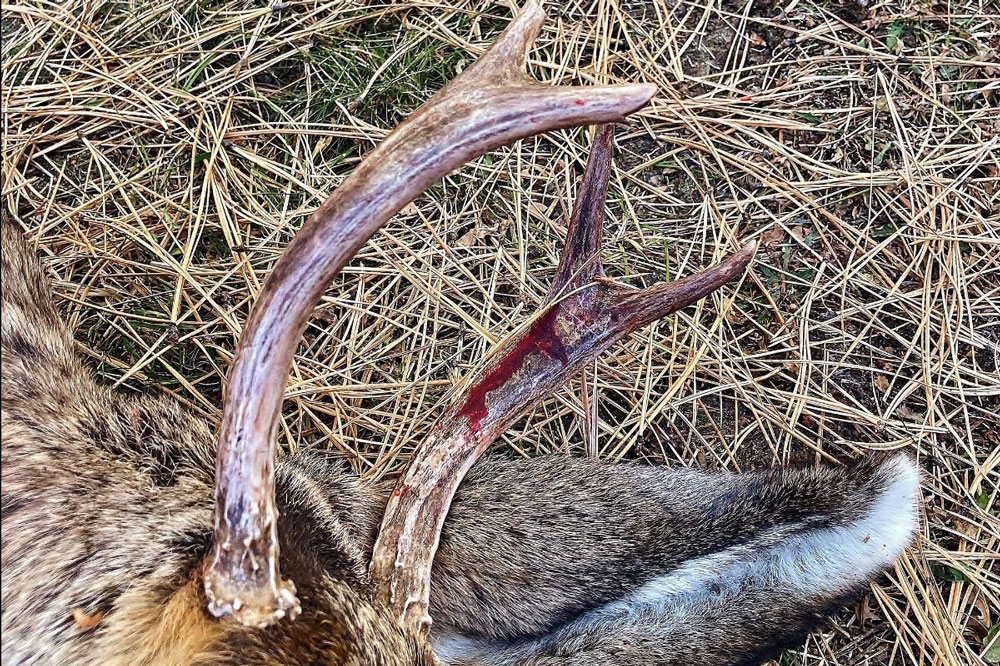Below is a news release from Colorado Parks and Wildlife.
A Black Forest woman who told Colorado Parks and Wildlife officers she took a days-old fawn into her home more than a year and raised it has been cited with two misdemeanors after the deer, now a young buck, gored a neighbor last week.
CPW officers cited 73-year-old Tynette Housley with illegal possession of wildlife and illegally feeding wildlife, both unclassified misdemeanors. She was also issued a warning for possessing live wildlife without a license after she described keeping it in her home, then in her garage and ultimately on her property.
The two misdemeanors carry fines and surcharges totaling $1,098.50.
Housley was cited after the deer, a buck with two-pronged antlers, attacked a neighbor as she walked her dog Friday morning.
From her hospital bed, the victim described to CPW being surprised to notice the deer following her and then shocked when it attacked, knocking her down and thrashing her with its antlers.
The terrifying attack went on several minutes as the victim tried to run to a neighbor’s house and then to her own home. Repeatedly the deer knocked her down and gored her. The deer even continued to attack as she frantically opened her garage door. It relented only when she ran between two cars in her garage.
The victim suffered serious lacerations to her head, cheek and legs and bruises and was hospitalized overnight for treatment of her injuries before being released.
The deer, fresh blood covering its antlers, even approached a CPW wildlife officer who responded to investigate the attack. The officer euthanized the deer and took it to CPW’s animal health lab in Fort Collins to test it for rabies and other diseases.
The deer’s stomach contents confirm it was being fed by humans as it contained out-of-season foods including hay, grain, corn and possibly potato.
“We can’t say it enough: Wild animals are not pets,” said Frank McGee, CPW’s area wildlife manager for the Pikes Peak region. “Feeding deer habituates them to humans. They lose their fear of humans and that leads to these outcomes that are tragic for both wildlife and people. Injured and orphaned wildlife should be taken to licensed wildlife rehabilitators.”
(Photo source: Colorado Parks and Wildlife)
